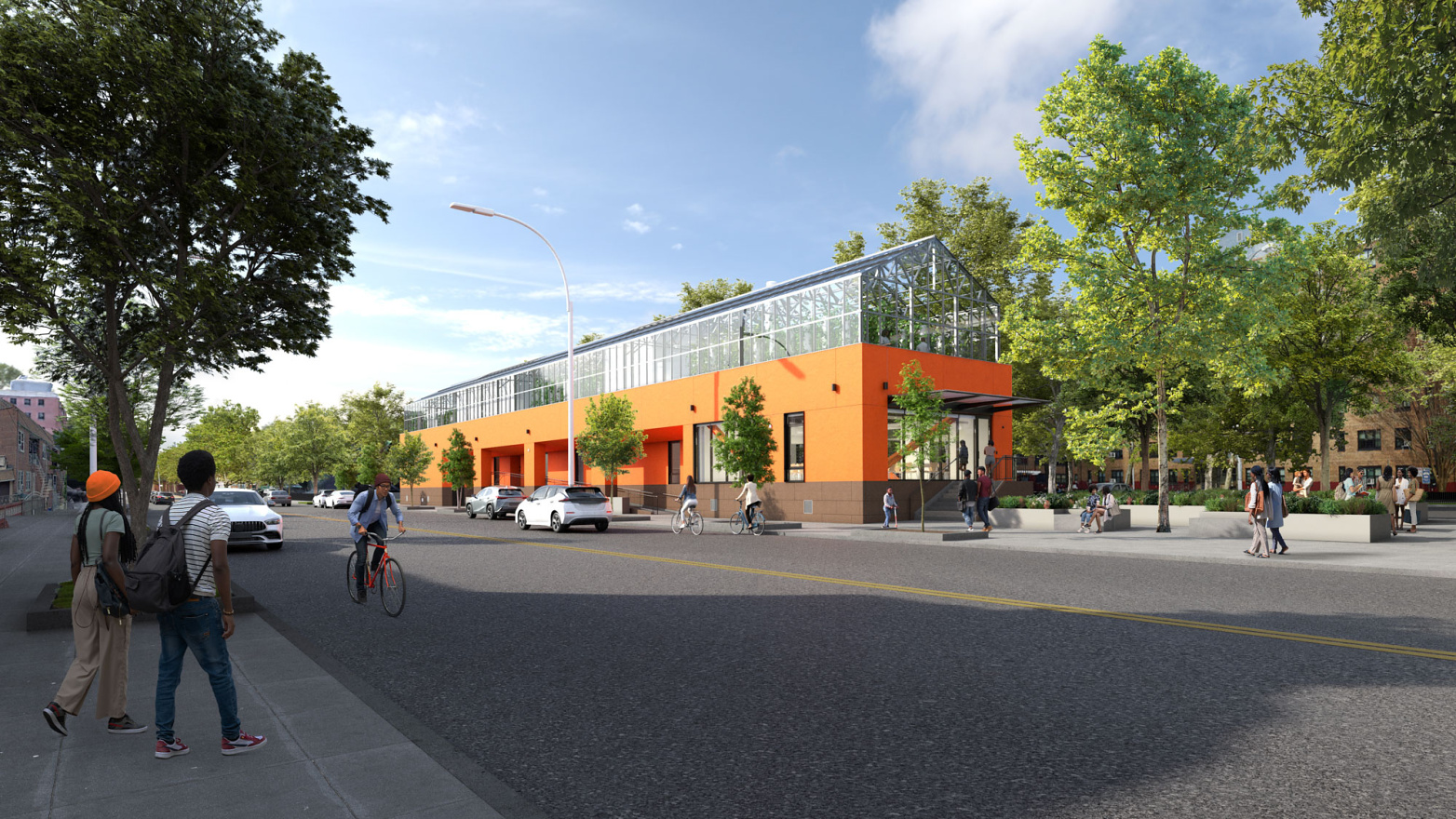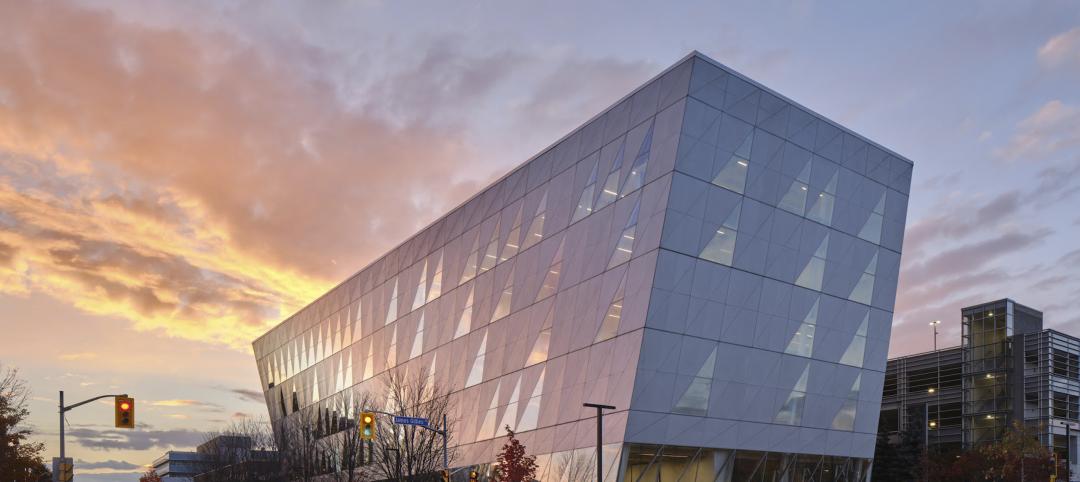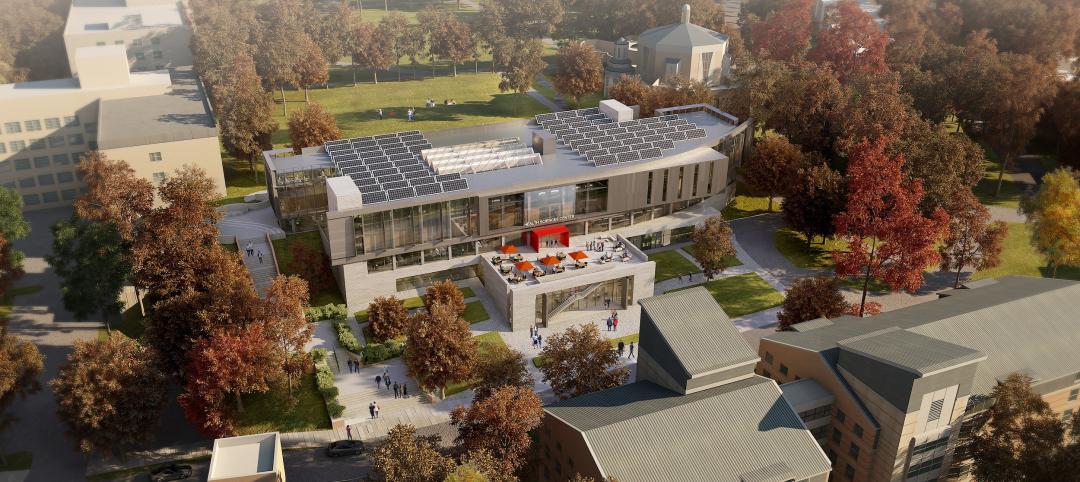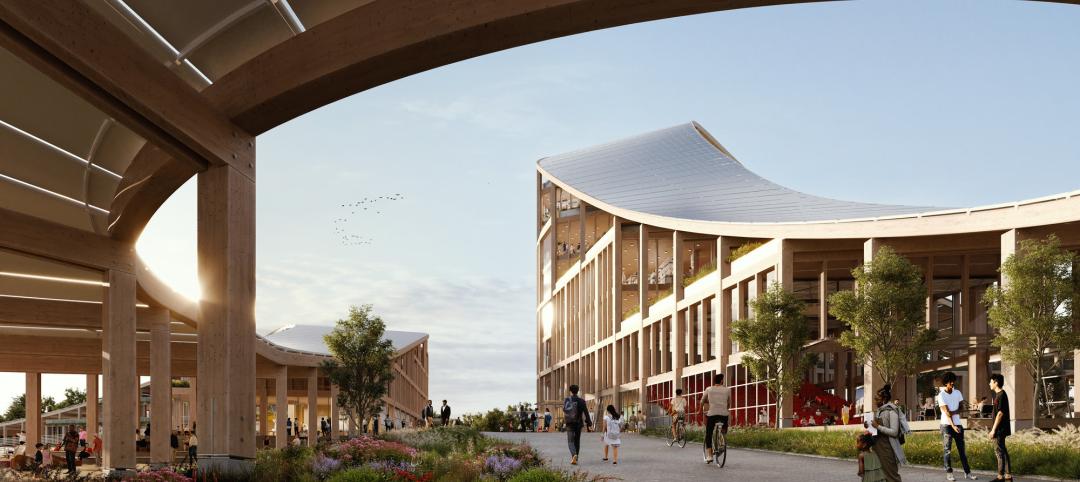Earlier this month, the City of New York broke ground on the new $18.2 million Marlboro Agricultural Education Center (MAEC) at the New York City Housing Authority’s Marlboro Houses in Brooklyn.
In line with the mission of its nonprofit operator, The Campaign Against Hunger, MAEC aims to strengthen food autonomy and security in underserved neighborhoods. MAEC will provide Marlboro Houses with diverse, community-oriented programs.
Designed by the Studio Gang and built by Consigli Construction Co., the 9,900-sf center will feature a rooftop greenhouse for raising plants and fish. The second-floor greenhouse will serve as a learning lab for schoolchildren and visitors and will help young adults engage with local, sustainable food production. On the ground floor, flexible teaching and community spaces will offer cooking and nutrition classes, among other programs. In the winter, MAEC will host an indoor market.
The building’s large windows and generous sidewalk frontage aim to strengthen connections with the surrounding neighborhood. Entrances on multiple sides create physical and visual connections to the street and surrounding area. A small public terrace and planter garden will encourage visitors to stop by.
Located in a coastal flood zone, the building will be elevated, which also will create opportunities for street furniture. The sustainable design includes passive heating and cooling, solar access, all-electric systems, and rainwater storage and reuse. The project, which targets LEED Gold certification, will use materials with minimal maintenance for a lifecycle of over 60 years.
The MAEC project leverages a design-build project delivery method to remove lengthy contracting from the traditional delivery method that historically has been used for city capital projects, according to the City of New York’s press release. The design-build method also will shorten timelines and increase participation by minority- and women-owned businesses.
On the Building Team:
Project operator: The Campaign Against Hunger
Design architect: Studio Gang
Design-build contractor: Consigli Construction Co.
Landscape architect: Eponymous Practice
Structural engineer: Thornton Tomasetti
Civil engineer: Philip Habib & Associates
Geotechnical engineer: Langan
MEPFP: BALA Consulting Engineers
Greenhouse enclosure design: Prospiant
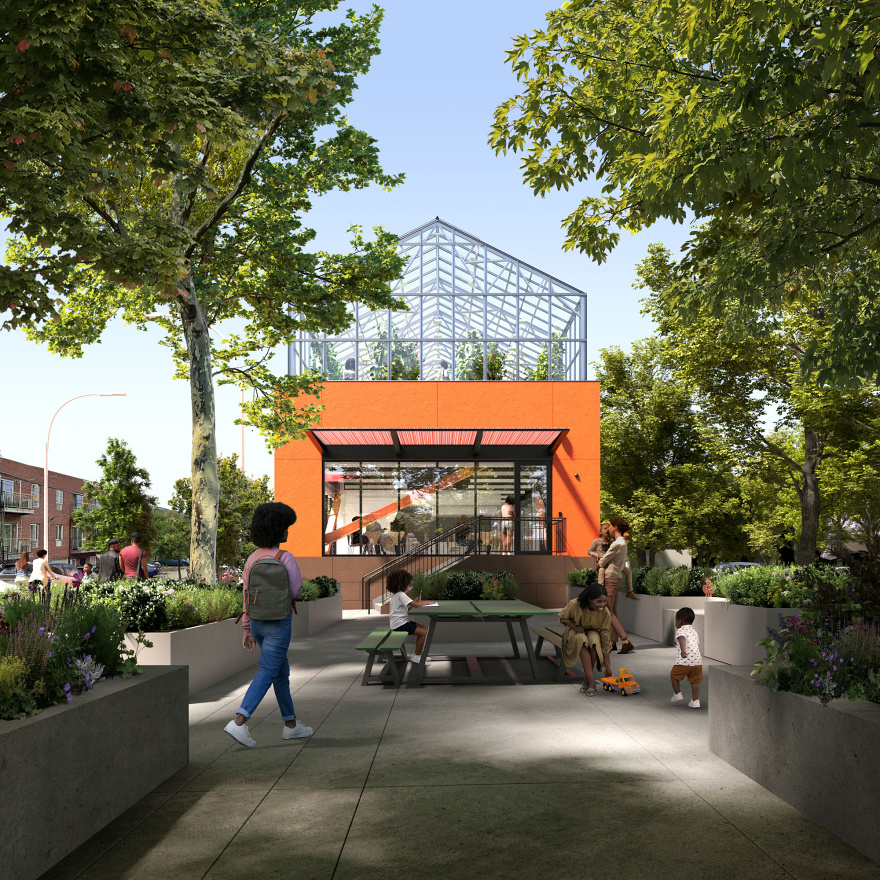
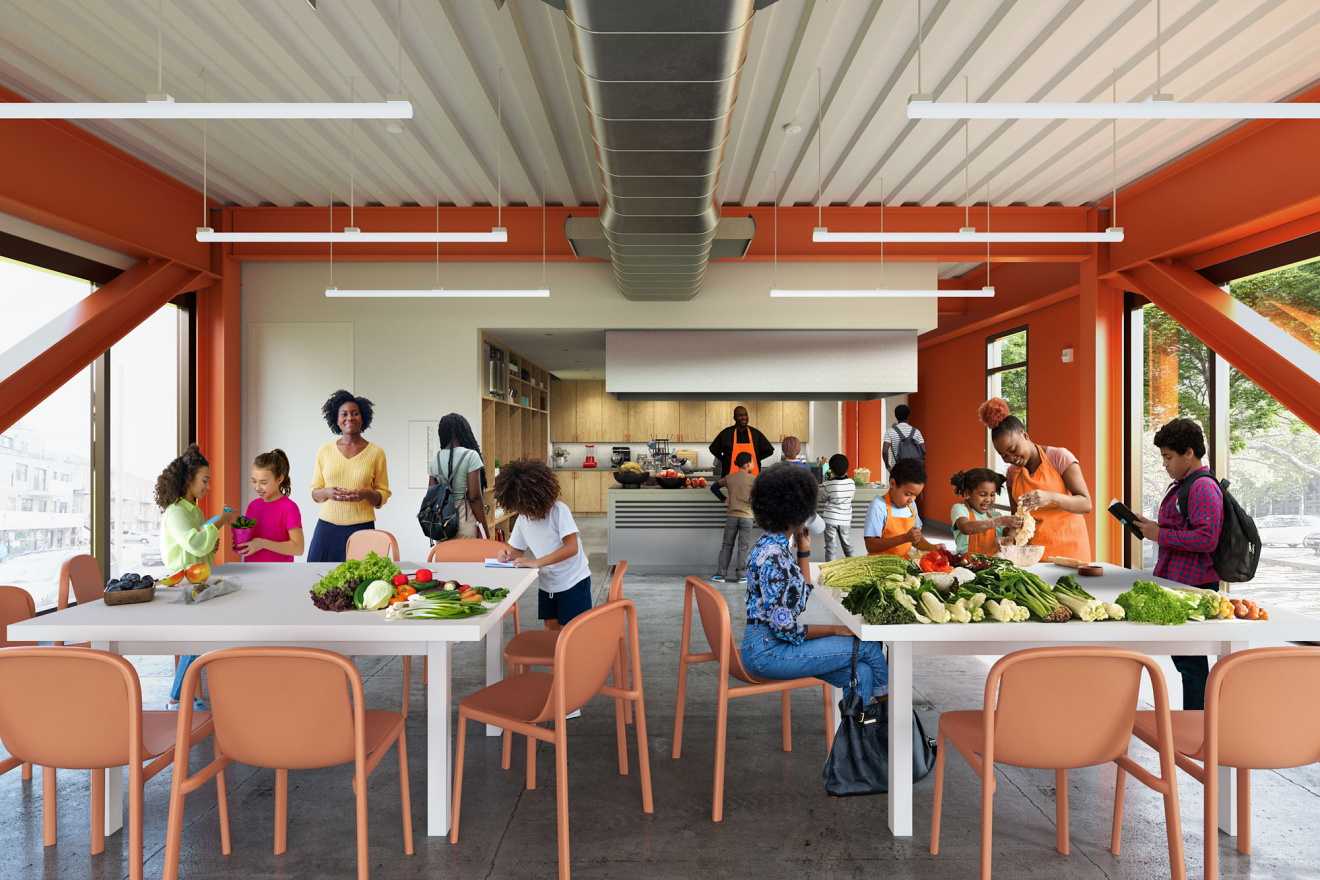

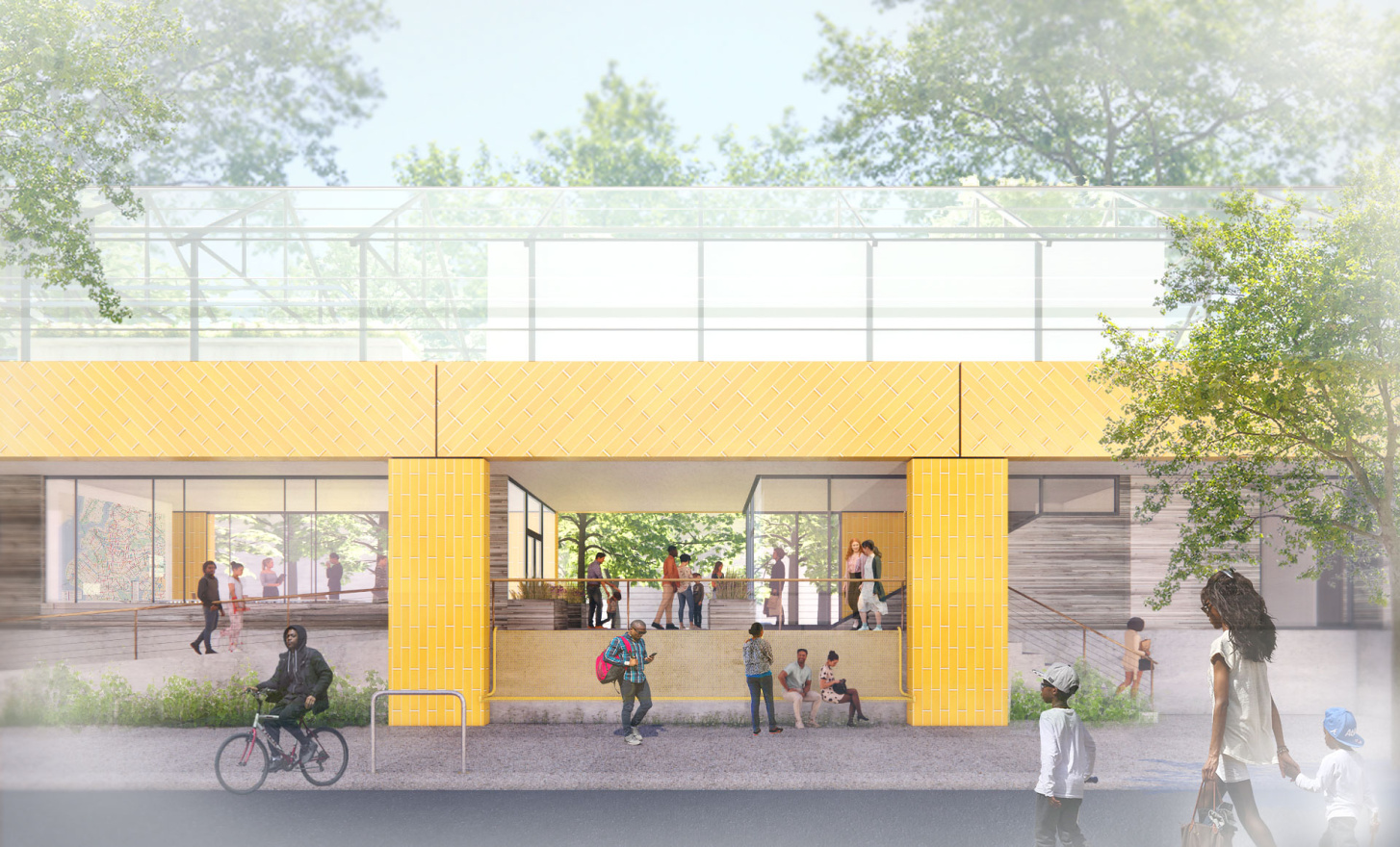
Related Stories
University Buildings | Jun 9, 2023
Cornell’s new information science building will foster dynamic exchange of ideas and quiet, focused research
Construction recently began on Cornell University’s new 135,000-sf building for the Cornell Ann S. Bowers College of Computing and Information Science (Cornell Bowers CIS). The structure will bring together the departments of Computer Science, Information Science, and Statistics and Data Science for the first time in one complex.
Student Housing | Jun 5, 2023
The power of student engagement: How on-campus student housing can increase enrollment
Studies have confirmed that students are more likely to graduate when they live on campus, particularly when the on-campus experience encourages student learning and engagement, writes Design Collaborative's Nathan Woods, AIA.
K-12 Schools | May 30, 2023
K-12 school sector trends for 2023
Budgeting and political pressures aside, the K-12 school building sector continues to evolve. Security remains a primary objective, as does offering students more varied career options.
K-12 Schools | May 22, 2023
The revival of single-building K-12 schools
Schools that combine grades PK through 12 are suddenly not so uncommon. Education sector experts explain why.
K-12 Schools | May 17, 2023
Designing K-12 schools for students and safety
While bullying, mental health, and other acts of violence are all too common in schools today, designers have shown that smart and subtle preventive steps can make a big difference. Clark Nexsen’s Becky Brady shares how prevention and taking action at the design level can create safe and engaging learning environments.
University Buildings | May 17, 2023
New UC Irvine health sciences building supports aim to become national model for integrative health
The new College of Health Sciences Building and Nursing & Health Sciences Hall at the University of California Irvine supports the institution’s goal of becoming a national model for integrative health. The new 211,660-sf facility houses nursing, medical doctorate, pharmacy, philosophy, and public health programs in a single building.
K-12 Schools | May 12, 2023
In Virginia, a new high school building helps reimagine the experience for 1,600 students
In Virginia, the City of Alexandria recently celebrated the topping out of a new building for Alexandria City High School. When complete in 2025, the high-performance structure will accommodate 1,600 students.
University Buildings | May 11, 2023
New ‘bold and twisting’ building consolidates School of Continuing Studies at York University
The design of a new building that consolidates York University’s School of Continuing Studies into one location is a new architectural landmark at the Toronto school’s Keele Campus. “The design is emblematic of the school’s identity and culture, which is centered around accelerated professional growth in the face of a continuously evolving labor market,” according to a news release from Perkins&Will.
University Buildings | May 5, 2023
New health sciences center at St. John’s University will feature geothermal heating, cooling
The recently topped off St. Vincent Health Sciences Center at St. John’s University in New York City will feature impressive green features including geothermal heating and cooling along with an array of rooftop solar panels. The geothermal field consists of 66 wells drilled 499 feet below ground which will help to heat and cool the 70,000 sf structure.
Mass Timber | May 1, 2023
SOM designs mass timber climate solutions center on Governors Island, anchored by Stony Brook University
Governors Island in New York Harbor will be home to a new climate-solutions center called The New York Climate Exchange. Designed by Skidmore, Owings & Merrill (SOM), The Exchange will develop and deploy solutions to the global climate crisis while also acting as a regional hub for the green economy. New York’s Stony Brook University will serve as the center’s anchor institution.


